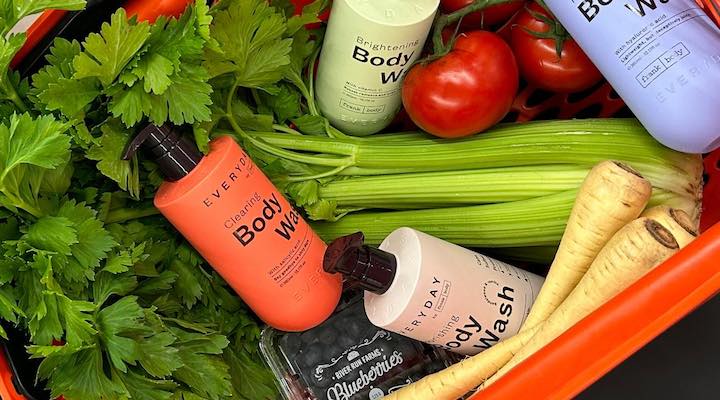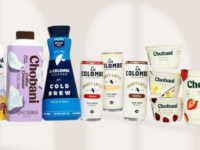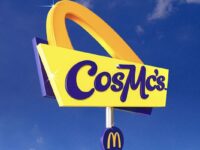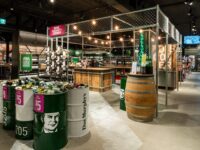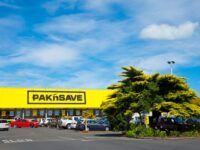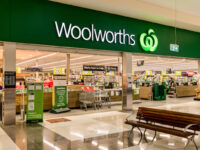Recently, the supermarket beauty aisle has undergone a makeover of sorts, with Australia’s leading supermarkets Coles and Woolworths now stocking digitally native self-care products. Nobody’s Nobody, Gem Oral Care, TBH skincare, Everyday by Frank Body and MCo Beauty are just some of the viral skincare brands that are now stocked in Coles and Woolworths. Beauty-dedicated retailers like Mecca and Sephora have dominated Australia’s market share along with e-commerce first sites like Adore bea
Unlock indepth features,executive
interviews and quarterly magazines
Recently, the supermarket beauty aisle has undergone a makeover of sorts, with Australia’s leading supermarkets Coles and Woolworths now stocking digitally native self-care products.Nobody’s Nobody, Gem Oral Care, TBH skincare, Everyday by Frank Body and MCo Beauty are just some of the viral skincare brands that are now stocked in Coles and Woolworths.Beauty-dedicated retailers like Mecca and Sephora have dominated Australia’s market share along with e-commerce first sites like Adore beauty, but now it appears supermarkets are making a play to enter the space in a more considered way. Beauty products don’t have to be at a luxury price point to deliver results with consumers’ purchase decisions driven by active ingredients, high payoff and a relatable brand.And the new class of beauty brands is digitally native and has partnered up with Australian supermarkets to stock their line of products due to the retailers’ price point, easy accessibility and reputation.Beauty on a budget Alanna Hinds, managing director of Nobody’s Nobody parent company Stirling and Hinds defines the brands’ customers as both educated and savvy.“It’s no news that the cost of living has been increasing in Australia, and consumers are looking at different ways to save and budget,” Hinds told Inside FMCG. Hinds thinks supermarkets, including Woolworths, which stocks Nobody’s Nobody, were motivated to diversify their beauty aisles with disruptor brands to offer consumers efficacious products at accessible price points.“We define amazing [products] as being able to innovate trend-led cult favourites, with levels of active [ingredients] to rival products costing over $100 that beauty shoppers love,” Hinds explained.This sentiment about the demand for efficacious products at a budget-friendly price point is shared by the co-founder of tbh skincare, Rachael Wilde.“Customers are increasingly seeking easier and more affordable beauty options, and supermarkets have evolved into self-care destinations,” Wilde told Inside FMCG.Contrastingly, the founder/CEO of MCo Beauty, Shelley Sullivan told Inside FMCG: “I don’t believe that this is a new trend, consumers have always been looking for affordability when it comes to beauty. Not everyone can afford high-end prices but we all deserve to carry a little bit of luxury in our handbag.”While Sullivan maintains that beauty consumers have always looked for cost-effective products, she does attribute consumers’ education around products to social media.“In the current economic climate, consumers are becoming a lot more savvy, they are learning through TikTok comparison reviews about the range of affordable alternatives that are available to their favourite luxury beauty products,” Sullivan explained. When MCo Beauty launched in Woolworths seven years ago, it was the smallest brand in the cosmetics category. Today, it is the number one brand, with 46 per cent market share – outselling global beauty giants Maybelline, L’Oréal, Revlon, Rimmel and Covergirl.Accessible shopping matters Beyond the price-point synergy, the biggest driver behind new-age beauty brands wanting to be stocked on the shelves of supermarkets is the increased accessibility. The founder of oral care disruptor brand Gem, Georgia Geminder, has made it her mission to make efficacious and beautifully branded oral care products accessible to everyone.Geminder told Inside FMCG: “Partnering with Woolworths helps us achieve this mission and brings us one step closer to ensuring every Australian home is filled with beautiful, high-performance oral care.”The nationwide aspect of supermarkets has been the biggest draw card, not only for Gem but also Nobody’s Nobody, TBH skincare and MCo Beauty.“We want our customers to be able to find us on the shelf easily and not have any barriers to trying our products. Inclusivity is one of our company values, and this goes hand in hand with accessibility,” Hinds said.Wilde wanted TBH skincare stocked in Coles so consumers could conveniently find high-quality skincare products while doing their grocery shopping.“Our presence in Coles not only makes tbh skincare more accessible but also taps into the trend of turning supermarket aisles into a one-stop shop for all of the customers’ self-care needs,” Wilde said.“Increasing the physical availability of the product by having it now stocked in more than 1200 stores around Australia is such an important part of that,” she added.Looking beyond just sales, accessibility can help determine whether a product goes viral and builds an online community of brand advocates.“Our highly engaged social media community wants instant gratification, they want to be able to go into their local store and find that hot new product as soon as they discover it,” Sullivan said.MCo Beauty credits its initial success to the accessibility of supermarkets during the pandemic because consumers were able to discover the brand in the beauty aisle while buying essential food items.



